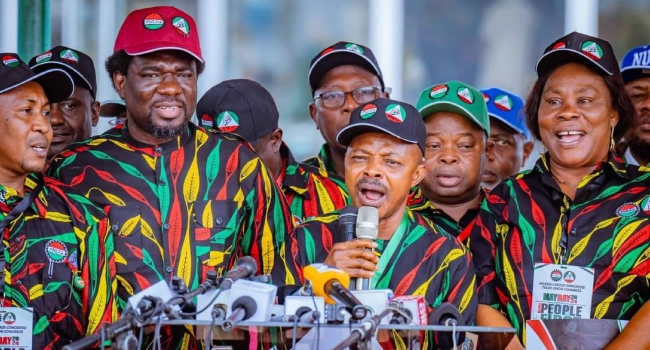The Federal Government has again tabled a proposal to pay N54,000 as the new minimum wage, an increase from its initial offer of N48,000. This move comes as the Tripartite Committee on the New Minimum Wage resumed negotiations following the withdrawal of Organised Labour from the talks last week.
The latest round of negotiations, held behind closed doors at the Nicon luxury hotel in Abuja on Tuesday, saw the government present its revised proposal.
According to a reliable source present at the meeting, the Organised Labour, represented by the Nigeria Labour Congress (NLC) and the Trade Union Congress (TUC), rejected the offer, deeming it insufficient. Both unions had previously proposed a minimum wage of N615,000.
READ ALSO: FG Seeks Fresh Talks with Labour Over Minimum Wage
NLC President Joe Ajaero voiced his dissatisfaction with the government’s proposal, describing it as “unsubstantial” and emphasizing the dire economic situation faced by workers.
Ajaero stressed the urgent need for a wage that adequately addresses the needs of Nigerian families and bridges the gap between the economic realities of workers and the bourgeoisie.
With the negotiations at an impasse, the labour union has set a deadline of May 31 for the Federal Government to reach a consensus on the new minimum wage and threatened that failure to meet this deadline could result in industrial action, as unions have directed their members in states that have yet to implement the N30,000 minimum wage to prepare for possible strikes.
READ ALSO: Labour Leader Rejects FG New Minimum Wage, Demands 615k
The delay in reaching an agreement has fueled tensions between labour and the government, particularly as the cost of living continues to rise following the removal of fuel subsidies.
Ajaero reiterated the unions’ demands, emphasizing the necessity of a wage that reflects the economic hardships faced by workers across the country.
As the May 31 deadline looms, all eyes are on the negotiating table, with both sides under pressure to find a resolution that addresses the concerns of workers while considering the economic constraints faced by the government.
